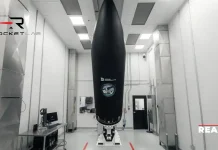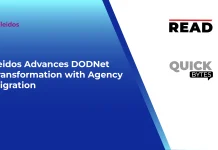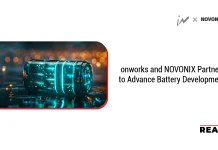Hi Diane, could you tell us about your journey in software?
I have been working in the software industry all my working life in various roles. I started working for Computer Associates, as a customer services representative. After that, I moved into a direct tele-sales role and, when CA acquired Ingress, I moved into selling through partners. I had an incredible manager at this point, who took the time to mentor and coach me. After he moved to Progress, I followed him into a Partner Account Manager role. From this point, I started to grow within the company, working with distributors, partners and direct sales, and soon became an Enterprise Solution Selling Manager. I’m now in a Sales Management role, with the task of growing the Digital Experience Division for EMEA.
What challenges did the COVID-19 pandemic pose for your team?
Initially, I think we all went into shock, just like most companies. But what made me really proud was how Progress dealt with it. The priority was to look after our staff and their families, reaching out to every person to make sure they were ok. After that, we made sure all workers had the necessary equipment to do their job from home. Once we had this, the move to WFH as a business was quite easy.
The real challenge was keeping connected. Initially, we went into overdrive making sure we were all meeting online and discussing items, but that soon became back-to-back meetings, which was mentally draining for everyone. Once we realized this, we started to reduce the meeting times, trying to make sure they were 45 minutes or less, stressing to staff that if they felt the meetings were not appropriate, it was OK to decline them. Surprisingly, our productivity increased, but we noticed people were not taking breaks and working in the evening. With this in mind, we needed to reassess this and make sure people knew it was ok not to be tied to the desk and take regular time out. The company started running wellbeing activities such as fitness, yoga and online meditation sessions and interesting things to do such as baking online with our families.
Regarding the customers, it was really important to make sure they knew Progress cared. We reached out to every customer, especially those in hospitality or travel areas, to look at ways we could support them. I think this has paid off as our customers are extremely loyal.
Read More: Read Magazine Interview with Leslie Alore, Global VP of Growth Marketing, Ivanti
What sets Progress apart from the competition?
Progress invests significantly in innovation every year, and certainly, when looking at digital experience, it can be overwhelming how to transition an organization from a traditional website to a slick and effective digital experience. Progress’ DX products are known for their ease of use and that shouldn’t be underestimated. A major benefit is you don’t have to transition everything at once, unlike some platforms. You can do it in stages, and everything can be integrated into your own best-of-breed backend systems.
Another reason we stand out from our competitors is the way we look after customers and partners. For example, if a customer purchases Sitefinity Cloud, we have a standard process to make sure the customer has a great onboarding experience. We work with the customers by advising on their architecture prior to moving into the cloud. Then we take them through a process of enablement, in order to build a strong relationship right from the start.
Once they are in the cloud, Progress provides the full service for them, so they don’t have to worry about anything technical and they can focus on achieving objectives. We don’t just stop there – we continually work with our customers to ensure they are getting the full benefit of the product. We educate and advise on ways they can improve their customer journeys through personalization and analytics. Lastly, it’s all documented, so there is no worry if a customer has staff changes. Our objective is to continually support their business objectives.
In what direction do you envisage DevOps marketing evolving in the years to come?
In short – best of breed, ease of use and speed to market. Customers are not just looking for CRM anymore, they need to provide a whole solution and integrate with multiple systems, but that doesn’t have to be one large platform. A DXP platform that allows composability of components offers companies change over time and the ability to integrate with existing systems is a must. I also believe personalization of messaging will be more prevalent, and automation of decisions that can give outcomes through a customer’s digital journey as they move to get information around your site. A great digital experience is key for customers, as you don’t have long to make an impact and it’s crucial to understand the customer journey and keep their interest to build loyalty.
What three things can business owners do to optimize digital outreach?
Consistently review your digital strategy, understand your customer journey and create the appropriate messaging. Make your experience as slick as possible and explore ways to speed it up or make it easier for the customer to better understand your product. Prospects do a lot of browsing before they buy and will leave the site if it’s too difficult to find the information they are looking for.
How do you see marketing automation impacting traditional sales and marketing?
Marketing automation, as well as other areas such as chat, have now become imperative to the sales cycle and funnel. It’s all about the customer journey being as easy as possible and, in the background, across multiple platforms, automation is critical for the overall experience and in turn will have a positive impact on the sales and marketing funnels.
Could you name the top 5 apps/platforms that you use for marketing?
6Sense, Dun & Bradstreet, Sitefinity, Google, Eloqua
What advice would you give to someone who aspires to be a business leader?
Firstly, believe in yourself, you can do it – a lot of people just think they can’t. If you aspire to become a leader, take the time to work with your manager to put a personal development plan in place. This is something Progress does for every staff member who wants it, and it’s incredibly valuable. Whether you want to do something specific in the short term or long term it’s so refreshing to have a manager sit down and discuss a path with you and give you a real understanding of how to get there.
Thanks Diane!





